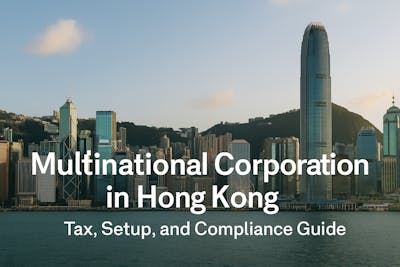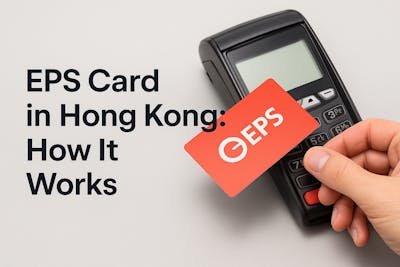All centralized VATPs operating in or actively marketing to Hong Kong must be licensed by the SFC under AMLO; add SFO Type 1/Type 7 if the platform deals in security tokens or provides automated trading services (ATS). Dual licensing depends on the business model; it is encouraged where relevant, not automatically required.
Retail investors may use licensed platforms with knowledge checks, token admission and risk controls; Professional Investor (PI) status is not required merely to access a licensed VATP.
Applicants must deploy systems before assessment; there is one External Assessment as a direct assurance engagement by a certified public accountant (practising), under a tripartite agreement among the SFC, the platform and the external assessor.
The transitional window for pre-existing platforms ended 31 May 2024; from 1 June 2024 only licensed or deemed-licensed VATPs could operate. Deemed-licensed status is not full licensing.
No capital gains tax; Profits Tax may apply based on the badges of trade (two-tier rates: corporations 8.25%/16.5%; unincorporated 7.5%/15%).
Hong Kong licenses Virtual Asset Trading Platforms (VATPs) under the Anti-Money Laundering and Counter-Terrorist Financing Ordinance (AMLO) and, where security tokens or automated trading services are involved, the Securities and Futures Ordinance (SFO).
Retail trading is permitted on SFC-licensed platforms with investor-protection measures. There is no capital gains tax on crypto; frequent, business-like trading may be subject to Profits Tax (two-tier rates).
This article breaks down the updated rules for crypto in Hong Kong, including who needs a license, how to obtain one, and more!
What is a Hong Kong Crypto License?
A Hong Kong crypto license is an authorization issued by the Securities and Futures Commission (SFC) that allows a business to operate a centralized virtual asset trading platform (VATP) in or from Hong Kong, or to actively market such services to Hong Kong investors/public.
VATPs may be regulated under (and often apply under) both regimes:
- SFO: Type 1 (dealing in securities) and Type 7 (providing automated trading services) where the platform trades security tokens and uses an automated trading engine.
- AMLO: a license for providing a VA service (i.e., operating a VA exchange) for centralized platforms. (OTC trading and VA brokerage are generally not within the AMLO VATP scope.)
Because a token’s classification may change over time, VATPs are commonly advised to consider dual licensing for business continuity.
Do You Need AMLO, SFO, or Both?
| Spot trading in non-security virtual assets | AMLO VATP license |
|---|---|
| Trading in security tokens and/or operating an ATS | SFO Type 1 and/or Type 7 (often alongside AMLO) |
Dual licensing depends on listings and functionality; it is not an automatic requirement for all platforms.
How to Get a Crypto License in Hong Kong
To operate a virtual asset trading platform (VATP) in or from Hong Kong, submit your application through SFC WINGS.
Where applicable, you may file a single consolidated application covering AMLO and SFO licenses.
Step 1: Create a WINGS Account
Register on the SFC WINGS portal to manage all licensing submissions and regulatory communications.
The WINGS account will be used to submit application bundles, receive regulatory correspondence, and respond to SFC follow-up queries through WINGS Mail.
Only authorized individuals should be granted access to the account.
Step 2: Start a Licensing Bundle
Create a new licensing bundle in WINGS and select the applicable license types, including the AMLO VATP license and, if required, SFO Type 1 and/or Type 7 licenses.
Upload the prescribed application forms and supporting attachments.
The built-in validation function should be used to identify missing or incomplete items before formal submission.
Step 3: Prepare Documents
Prepare and upload all required documentation, including governance materials, written policies and procedures, risk management frameworks, and internal control documentation.
The application must also identify a suitable External Assessor (EA) and include the EA’s capability statement.
All materials should be prepared in a manner consistent with the SFC’s published guidance and licensing approach applicable in 2026.
Step 4: Deploy Systems
Once the SFC has accepted the application for processing, the applicant must deploy its operational systems exactly as described in the application.
This includes systems for custody and client asset segregation, market surveillance, AML/CFT and KYC controls, cybersecurity safeguards, and business continuity arrangements.
These systems must be fully implemented before the external assessment stage begins.
Step 5: External Assessment
A tripartite agreement is entered into among the SFC, the applicant, and the External Assessor.
The EA conducts a single external assessment as a direct assurance engagement, signed by a certified public accountant (practicing).
Further, the assessment covers both the design and operational effectiveness of the applicant’s implemented controls and systems, based on actual deployment rather than proposed arrangements.
Step 6: license Decision
The SFC reviews the external assessment report, together with any remediation measures taken by the applicant.
If the applicant is assessed as fit and proper, and requirements relating to capital, financial resources, and operational readiness are satisfied, the SFC will grant the license.
Licensing conditions may be imposed, and the approval decision is issued through WINGS Mail.
Hong Kong Crypto License Requirements
When applying for an SFC license via WINGS, the application fee is typically requested after your application is accepted (paid through WINGS).
| Applicant | Licence | Fee (HKD) |
|---|---|---|
| Licensed Corporation (LC) | Type 1 / Type 7 (per regulated activity) | 4,740 |
| Licensed Representative (LR) | Type 1 / Type 7 (per regulated activity) | 1,790 |
| Responsible Officer (RO) | RO approval (per regulated activity) | 2,950 |
Type 7 application and annual fees (and CPT hours) are waived when RA 7 is incidental to RA 1 and/or RA 2, per the SFC fee rules/guidance.
Retail Investor Access for Hong Kong Crypto (SFC-Licensed VATPs)
In 2026, retail investors can use SFC-licensed VATPs, but only if the platform applies investor-protection controls.
Licensed VATPs must typically implement virtual asset knowledge checks (and training if needed), risk profiling with client exposure limits, token admission governance, and clear risk disclosures and warnings.
Professional Investor (PI) status (often a portfolio of at least HKD 8 million) is not a blanket requirement to use a licensed VATP, though suitability-style controls may apply where products are treated as complex.
List of SFC-Licensed VATPs (Check the Live Register)
The SFC maintains a live list of licensed virtual asset trading platforms (VATPs), plus related lists (for example, deemed-licensed and closing-down platforms).
Before citing a platform or onboarding clients, always verify the platform’s name, Central Entity (CE) number, license status, and license dates on the public register.
Click here to check the “Lists of virtual asset trading platforms”

Post-Licensing Regulations and Compliance for Crypto Exchanges in Hong Kong
Licensed VATPs have ongoing duties, including notifying the SFC of material incidents and material non-compliance, making required financial returns/financial resources submissions and audit-related filings, maintaining client asset segregation and custody controls with insurance/compensation arrangements, and complying with AML/CFT requirements (ongoing monitoring, screening, and record-keeping).
Cryptocurrency AML/CFT Laws, Rules, and Regulations
Under AMLO, SFC-licensed VASPs must run an AML/CFT program (CDD/KYC, ongoing monitoring, and record-keeping) aligned to SFC guidance.
Separately, the duty to file STRs to the JFIU (and the criminal offences for failure to disclose and tipping-off) arises under DTROP/OSCO/UNATMO: failure to disclose can carry up to 3 months’ imprisonment and a HKD 50,000 fine, while tipping-off can carry up to 3 years’ imprisonment and a HKD 500,000 fine.
How Crypto Is Taxed in Hong Kong
Hong Kong generally does not tax capital gains, but crypto profits can be subject to Profits Tax if the activity is a trade/business (facts like frequency, volume, intention, and whether held on capital or revenue account).
If taxable, the two-tier rates are 8.25% / 16.5% for corporations and 7.5% / 15% for unincorporated businesses.
Conclusion
Hong Kong’s licensing regime for crypto is structured and enforceable.
The SFC sets a high compliance bar for who can operate and how platforms serve investors.
If you plan to launch a crypto exchange or provide digital-asset services in Hong Kong, licensing is mandatory and detailed.
Air Corporate can help you navigate the SFC license process, meet AML/CFT requirements, and launch compliantly.
FAQs
VATPs are regulated under AMLO (Cap. 615); security tokens/ATS under SFO (Cap. 571); e-wallets/SVFs under PSSVFO (Cap. 584).
SFC supervises VATPs. HKMA oversees banks and licenses SVFs/e-wallets under PSSVFO.
From 1 Jun 2023, exchanges must be SFC-licensed under AMLO (and SFO if security tokens/ATS). Since 1 Jun 2024, only licensed or deemed-licensed platforms may operate.






